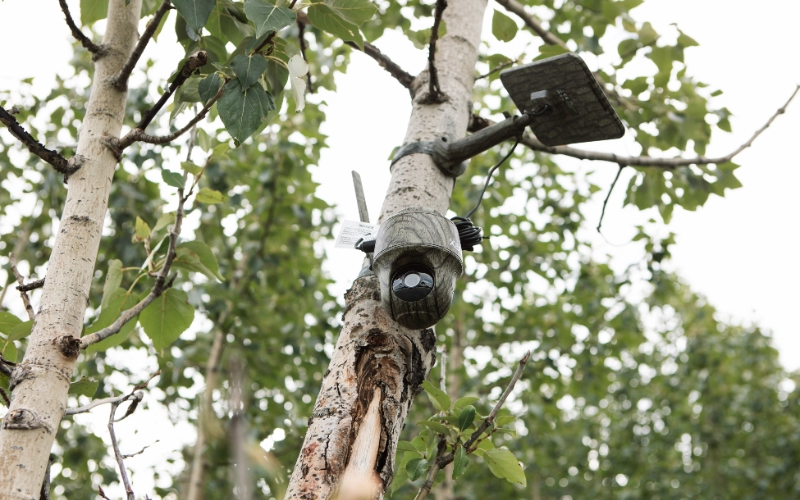The Price of Greenwashing: A Guide For Businesses

July 23, 2025

Over the last decade we’ve witnessed a shift when it comes to CSR and ESG initiatives. Sustainability is no longer just a marketing angle, it’s a mandate. With the passing of recent legislation, businesses making environmental claims now face greater scrutiny, higher stakes, and a clearer set of expectations. Here's what you need to know to avoid greenwashing, build trust, and lead with confidence.
First things first, how is greenwashing defined? Greenwashing refers to the act of misleading consumers about the environmental practices of a company or the environmental benefits of a product or service. It erodes trust, damages reputations, and ultimately undermines real climate progress.

Whether intentional or accidental, companies caught greenwashing face significant risks: public backlash, legal action, and lasting reputational damage. In today’s world of social media and vigilant watchdog journalism, even minor missteps can rapidly escalate and have long-term consequences.Here are a few recent examples of businesses that faced significant repercussions for lacking the data and evidence to back up their environmental claims:
In July 2025, Australia’s ACCC filed federal court proceedings against Edgewell, accusing the company of labeling over 90 sunscreen products as “reef-friendly” despite containing ingredients like octocrylene and homosalate which are scientifically proven harmful to coral reefs. Regulators found these claims lacked independent scientific verification and misled consumers for years. The case is ongoing.
In April 2025, Clorox Australia was fined AUD $8.25 million (approximately CAD $7.3 million) by the Australian Competition and Consumer Commission (ACCC) for misleading consumers about its GLAD “50% Ocean Plastic Recycled” garbage bags. The bags were marketed as containing recycled plastic collected from the ocean, but in reality, the plastic was sourced from communities up to 50 km inland. The court found that the misleading claims deprived consumers of the opportunity to make informed purchasing decisions.
Sources:
https://www.reuters.com/sustainability/australian-regulator-sues-clorox-over-false-claims-ocean-plastic-bags-2024-04-18/
https://www.accc.gov.au/media-release/clorox-ordered-to-pay-825m-in-penalties-for-misleading-ocean-plastic-claims-about-certain-glad-products?
In 2024, Tyson Foods was sued in the U.S. for promoting “climate-smart” beef and ambitious net-zero goals without credible plans to achieve them. The lawsuit alleges these claims mislead consumers by overstating the company’s environmental progress. This case reflects growing legal scrutiny over agricultural and food-sector climate claims that rely on speculative or unproven sustainability promises.
Today’s consumers are skeptical and rightfully so. When a company is found to be greenwashing, trust plummets and loyalty is difficult to regain. Over half (54%) of consumers say they would stop buying from a company if they were found to have been misleading in their sustainability claims, according to a 2023 study from KPMG UK. Similarly, a 2023 survey by Deloitte found that 57% of Canadian consumers don’t believe most green claims brands make.
Worse yet, the fear of being called out has triggered a trend known as greenhushing—when companies stay silent about sustainability efforts to avoid scrutiny. While intended to mitigate risk, it often backfires by stalling transparency, eroding trust, and slowing progress on real climate action.

With the passage of Bill C-59, the answer is increasingly yes. This legislation marks a major shift in how environmental claims are regulated, amending the Competition Act to prohibit vague or unsubstantiated green claims, like “eco-friendly,” “climate neutral,” or “sustainable”, unless backed by adequate and proper testing.
Crucially, the burden of proof now lies with businesses: companies must be ready to substantiate their environmental messaging with credible, globally accepted evidence. The Competition Bureau has also been granted expanded powers to investigate, challenge, and penalize misleading claims, making reputational and legal risks far more likely for those who can’t provide sound, verifiable proof.
While the law doesn’t prescribe a specific methodology, it demands transparency, scientific rigor, and adherence to recognized standards. For companies of all sizes, this is a wake-up call to rethink how they communicate climate impact and to ensure every claim can stand up to scrutiny.

Compliance today means going beyond good intentions. It’s about substantiating every claim with evidence, transparency, and accountability. To avoid both greenwashing and greenhushing, companies must take a proactive, credible approach to sustainability communications.
Here’s what that looks like in practice:
At veritree, we’re committed to making it easy for businesses to take credible, transparent climate action:

As regulation increases and consumers become more discerning, businesses need partners they can trust. With veritree, you don’t just make claims, you back them up.
Bill C-59 is more than a compliance hurdle, it’s a call to raise the bar. In a world where trust is currency and scrutiny is high, the companies that will thrive are those that lead with transparency, back their claims with science, and invest in credible partnerships.
Greenwashing may carry a high price, but credible sustainability is a long-term investment, in brand equity, consumer trust, and climate impact. The path forward is clear: act boldly, communicate clearly, and prove every promise.
PREV BLOG